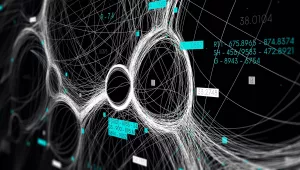Memo in report Confrontation or Collaboration? Congress and the Intelligence Community
This originally apeared as a Background Memo (pp. 36-39) in the report Confrontation or Collaboration? Congress and the Intelligence Community, a publication of The Intelligence and Policy Project of Harvard Kennedy School's Belfer Center for Science and International Affairs.
The Intelligence Community's (IC) faulty assessments on Iraqi WMD in 2002 highlights the role Congress plays in promoting the analytic rigor and utility of strategic intelligence assessments, such as National Intelligence Estimates (NIEs). As policymakers and consumers of strategic intelligence, it is also important that members of Congress understand the fundamentals of intelligence assessments and NIEs.
This memo provides an overview of strategic intelligence assessments and NIEs. After discussing the drafting process, the memo highlights challenges the IC faces in NIE production.
What is a National Intelligence Estimate?
National Intelligence Estimates (NIEs) are the IC's most authoritative written judgments on national security issues. NIEs usually provide information on the likely course of future events and highlight the implications for U.S. policymakers.
The National Intelligence Council (NIC) produces NIEs after consulting with all 16 IC members through an interagency process. The NIC serves as a bridge between the intelligence and policy communities, as a source of deep substantive expertise on critical national security issues, and as a focal point for IC collaboration.
- The NIC's goal is to provide policymakers with the best unvarnished and unbiased information, regardless of whether analytic judgments conform to U.S. policy.
Production of a NIE
Senior civilian and military policymakers, including congressional leaders, typically request NIEs.
- Before a NIE is drafted, the relevant National Intelligence Officer (NIO) produces a concept paper or ‘terms of reference' (TOR) and circulates it throughout the IC for comment. The TOR defines the key estimative questions, determines drafting responsibilities, and sets the drafting and publication schedule.
- Several IC analysts from different agencies produce the initial text of the estimate.
- The NIC then meets to critique the draft before it is circulated to the broader IC.
- Representatives from the relevant IC agencies meet to hone and coordinate line-by-line the full text of the NIE. Working with their agencies, representatives also assign the confidence levels to each key judgment.
- IC representatives discuss the quality of sources with intelligence collectors to ensure the draft does not contain erroneous information.
- The National Intelligence Board, comprised of the directors of all 16 intelligence agencies, reviews and approves the document. The NIC then distributes the NIE to key policymakers in both the executive and legislative branches.
Challenges to the Production of NIEs
The IC must overcome several challenges to produce accurate and useful strategic intelligence assessments, including:
- Urgent Requests vs. Lengthy Process: The process of interagency coordination and an insistence on analytic rigor normally push the completion of NIEs to several months or even more than a year. Per Congress's request in the fall of 2002, the IC rushed to complete the NIE on Iraq's WMD programs in less than a month. Since a rushed product can result in poor or inaccurate assessments, the IC must balance the urgency for a requested assessment with a commitment to analytical rigor.
- Interagency Collaboration: Because NIEs represent the consensus view of the IC, all 16 agencies have input on each NIE. Such collaboration can lead to:
- Gridlock, where many different interests slow the analytic process.
- Compromise, where the estimates contain only "lowest common denominator" language.
- Groupthink, where opposing views are subconsciously discouraged.
Politicization?
Throughout the past several decades, the release of a NIE on a controversial policy have usually resulted in charges that the IC politicized its key findings. Charges of politicization come from both Democrats and Republicans, but normally emerge from the side that does not agree with the policy implications of the analysis. Changes or reversals in NIE assessments over time cause some legislators to question whether the change resulted from newly collected intelligence or whether analysts changed their position to support a specific political agenda.
- For example, the IC accusation of politicization surfaced after the key judgments of NIEs on the ballistic missile threat to the United Sates changed between 1993 and 1995. Some Republicans claimed the IC politicized the findings to support President Clinton's policy against missile defense systems.
- Democrats accused the IC of politicization after the release of the NIE on Iraq's WMD programs because they believed they supported the policy decision to invade Iraq.
Congress has investigated the issue of politicization within the IC numerous times, as have independent commissions. To date, these investigations have never found evidence of politicization by analysts.
Learning from the 2002 NIE on Iraq WMD
Beginning in June 2003, the Senate Select Committee on Intelligence (SSCI) conducted a formal review of prewar intelligence assessments on Iraq. Their report concluded:
- A groupthink dynamic led analysts, collectors and managers to interpret ambiguous evidence as conclusively indicative of a WMD program.
- Groupthink was so pervasive that formalized IC mechanisms established to challenge assumptions and groupthink were not utilized.
- In a few significant instances, the analysis in the Iraq NIE suffered from a "layering" effect whereby analysts based assessments on previous judgments without carrying forward the uncertainties of the underlying judgments.
Also in response to the problems with pre-Iraq war intelligence, the 2005 Commission on the Intelligence Capabilities of the United States Regarding Weapons of Mass Destruction (The Robb-Silberman Report) noted the need to:
- Collect more meaningful intelligence, especially Human Intelligence (HUMINT).
- Provide more rigorous analysis that avoids unwarranted assumptions and encourages diverse and independent perspectives.
- Include political/regional context in the analysis of technical issues.
- Emphasize long-term products instead of only focusing on short-term assignments.
- Train analysts and provide structure for learning the business and tradecraft of analysis.
- Actively question analysts on their assumptions.
The IC has already implemented several of these recommendations in its production of NIEs. Despite the controversy surrounding its key judgments, many consider the 2007 NIE on the Iranian nuclear program an indication of improvement because the IC:
- Based assessments on new intelligence, rather than relying exclusively on older information.
- Provided definitive indications of the level of confidence for key judgments.
- Avoided relying on conclusions of previous assessments and did not disregard the implications of new intelligence.
- Employed an outside group responsible for alternative analysis to test an alternative theory explaining the new intelligence and key judgments.
- Instead of "voting" on the NIE's key judgments to produce "consensus," the NIE included differing agency assessments within the body of the document rather than in the footnotes.
Future Issues
Policymakers should not consider NIEs to be conclusive or infallible predictions of the future. Estimates are precisely that: The IC's best informed estimate of a situation given available intelligence. Errors on the scale of the Iraq NIE have grave repercussions for the nation, so the NIE process must continue to improve to guard against similar failures.
Congress has an important role to play in ensuring that the IC continues to improve NIEs. Future issues surrounding NIEs will likely include some of the following themes:
- Public Release: An assessment of the value of declassifying and releasing NIEs to the public.
- Politicization: An examination of the time and methodological constraints facing the IC in producing NIEs, which may help manage expectations and combat perceptions of politicization.
- The Fine Print: A discussion that obliges policymakers to read important NIEs in their entirety—to read the fine print, per se—particularly when using intelligence to inform sensitive and politically contentious decisions.
Sources
"Behind the Iran-Intelligence Reversal," The Wall Street Journal, 8 December 2007.
Bolton, John. "The Flaws in the Iran Report." Washington Post, 6 December 2007.
"Commission to Assess the Ballistic Missile Threat to the United States." 15 July 1998, tp://www.fas.org/irp/threat/missile/rumsfeld/index.html.
Crail, Peter. "Intel Report Reshapes Iran Sanctions Debate," Arms Control Today, Jan/Feb 2008.
Bruno, Greg. "Backgrounder on National Intelligence Estimates." Council on Foreign Relations. http://www.cfr.org/publication/7758/national_intelligence_estimates.html#1.
Department of Defense. "2001 Quadrennial Defense Review." http://www.defenselink.mil/pubs/pdfs/qdr2001.pdf.
Director of National Intelligence. "Brief NIC History." 2009. 19 March 2009. http://www.dni.gov/nic/NIC_history.html#.
Director of National Intelligence. "Iran: Nuclear Intentions and Capabilities." http://www.dni.gov/press_releases/20071203_release.pdf.
Director of National Intelligence. "National Intelligence Estimates and the NIE Process." http://www.dni.gov/press_releases/20071203_release.pdf.
Dobbs, Michael. "An Intelligence Turnaround: How Politics Helped Redefine Threat," Washington Post, 14 January 2002.
"Emerging Missile Threats to North America During the Next 15 Years," PS/NIE 95-19, November 1995, http://www.fas.org/spp/starwars/offdocs/nie9519.htm.
Hildreth, Steven A. and Amy F. Woolf. National Missile Defense: Issues for Congress. Congressional Research Service, 2 May 2001.
Gates, Robert. "Intelligence Analysis on the Long-Range Missile Threat to the United States," testimony to the Senate Select Committee on Intelligence, 4 December 1996.
Gjelten, Tom. "Iran NIE Reopens Intelligence Debate," NPR. 17 January 2008.
Jervis, Robert. "Reports, Politics, and Intelligence Failures: The Case of Iraq." The Journal of Strategic Studies, vol. 29, no.1 (February 2006).
Jervis, Robert. Perception and Misperception in International Politics. Princeton, NJ: Princeton University Press, 1976.
Kissinger, Henry. "Misreading the Iran Report: Why Spying and Policymaking Don't Mix," Washington Post, 13 December 2007.
Linzer, Dafna. "Iran is Judged 10 years from Nuclear Bomb." Washington Post, 2 August 2005.
Lowenthal, Mark. Intelligence: From Secrets to Policy, 2nd Edition. CQ Press: Washington DC, 2003.
Novak, Robert. "'Arrogant' CIA angers, distresses GOP watchdogs in Congress," Chicago Sun-Times, 24 December 2007.
"Prospects for the Worldwide Development of Ballistic Missile Threats to the Continental United States," NIE 93-17. http://www.fas.org/irp/threat/nie9317.htm.
Santora, Marc. "Candidates Hold to their Stances on Iran." New York Times, 4 December 2007.
Sanger, David E. and Steven Lee Myers. "Details in Military Notes Led to Shift on Iran, U.S. Says," New York Times, 6 December 2007.
Sanger, David E. and William J. Broad. "Iran is Reported to Test New Centrifuges to Make Atomic Fuel." New York Times, 8 February 2008.
Senate Select Committee on Intelligence, "U.S. Senate Report on the U.S. Intelligence Community's Prewar Intelligence Assessments on Iraq." http://www.globalsecurity.org/intell/library/congress/2004_rpt/iraq-wmd-intell_toc.htm.
Trachtenberg, David J. "Off the radar." Armed Forces Journal, 2007.
Wright, Robin and Glenn Kessler, "Review of Iran Intelligence to be Sought," Washington Post, 7 December 2007.
Read and download the full report:
Confrontation or Collaboration? Congress and the Intelligence Community
Download this memo:
Rosenbach, Eric and Aki Peritz. "National Intelligence Estimates." Memorandum, "Confrontation or Collaboration? Congress and the Intelligence Community," Belfer Center for Science and International Affairs, Harvard Kennedy School, July 2009.







